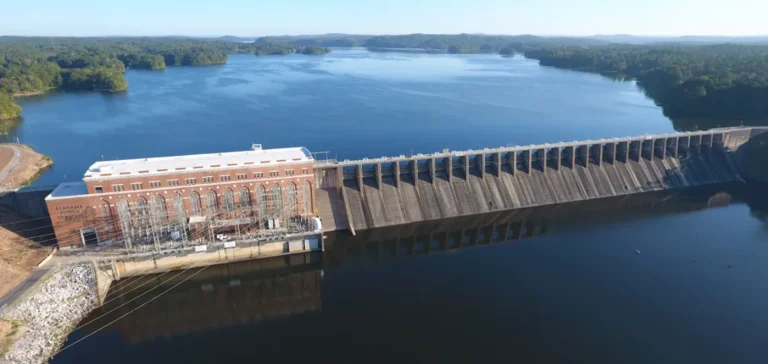Georgia Power is accelerating modernization work on its hydroelectric fleet, supported by approval from the Georgia Public Service Commission (PSC). The operator currently runs 15 hydroelectric facilities and holds an interest in a sixteenth, totaling 66 generating units and more than 1,100 megawatts (MW) of capacity in Georgia.
The facilities included in these investments notably comprise the Tallulah, Yonah, Bartlett’s Ferry and North Highlands plants. These sites, in operation for several decades, require turbine, generator, and auxiliary equipment replacements to remain in compliance with the Federal Energy Regulatory Commission (FERC) under the Federal Power Act (FPA).
Replacement of critical production equipment
The modernization projects focus on equipment that has reached or is nearing the end of its service life. The work is designed to maintain production capacity, improve operational efficiency, and ensure long-term reliability. Each upgrade follows a strategy of asset preservation without service interruption, in compliance with federal licenses.
The 2025 Integrated Resource Plan (IRP), approved by the PSC, authorized additional expenditures for these operations. Among the actions undertaken, Plant Tugalo completed work on all four of its units. Commissioned in 1923–1924, this facility in the North Georgia hydro group underwent turbine and generator replacements, along with upgrades to control and distribution systems.
Progress at multiple hydro facilities
Beyond Tugalo, Georgia Power reported progress at the Bartlett’s Ferry, Nacoochee, Oliver, Burton, and Sinclair sites. Unit 1 of Plant Bartlett’s Ferry returned to service in July 2025, following work similar to that completed at Tugalo. Units 1 to 3 at this facility entered service in the 1920s, with the fourth unit commissioned in 1951.
The work carried out at these plants includes generator replacements, turbine upgrades, and refurbishment of critical systems such as lubricating oil circuits, service water networks, 480-volt switchgear, and automated control systems. These operations are intended to secure continuous generation capacity for the coming decades.






















